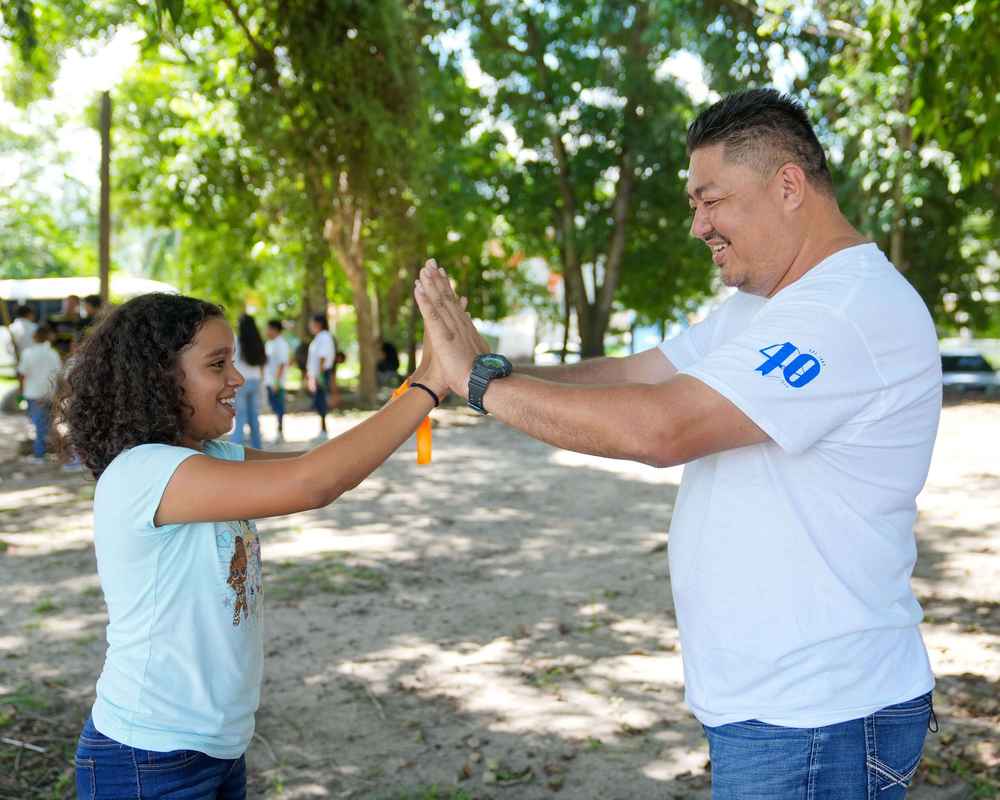Discover how we support our communities
Reforestation in Central America and the Caribbean
Gildan contributes to initiate reforestation projects in the neighbouring communities of its operations.
• Dominican Republic: For World Environment Day, our employees team up with the Canadian embassy in the Dominican Republic to participate in voluntary reforestation at the San Luis Ecological Park, an area protected by the Ministry of the Environment and which Gildan sponsors to guarantee that the more than 50,000 trees already planted by the Company reach maturity.
• Honduras: Our operations in Honduras organize environmental volunteer activities. Usually, around 100 volunteers from our textile facilities in Honduras participate in reforestation activities. Together with the community, they plant trees or shrubs chosen specifically for that area in partnership with local municipalities.
• Nicaragua: Gildan has had a long-standing partnership with Sow to Harvest, a program that collaborates with local farmers, municipalities, Ministry of Environment and Natural Resources, and National Forestry Institute. During the course of this partnership, Gildan has supported reforestation of over 36,000 trees.

BEACH CLEAN-UP INITIATIVES
On a regular basis, Gildan organizes beach clean-ups in Nicaragua and Honduras to promote awareness about respecting the environment, among our employees, and also within the communities where we operate. These activities are usually carried out in partnership with local institutions, such as municipalities, the Ministry of Environment and Natural Resources, the Nicaraguan Institute of Tourism, and a local recycler for proper disposal of the collected waste.

PROMOTING ENVIRONMENTAL RESPONSIBILITY AMONG YOUTH
Gildan has had a longstanding partnership with World Vision Honduras, supporting the Childhood Education and Transforming program to strengthen the quality of education provided to children, especially their socioemotional and socioenvironmental skills. With over U.S.$700,000 contributed to the organization during the course of the partnership, Gildan has helped change the lives of more than 351,000 children. Since 2023, Gildan has partnered with the South Carolina Aquarium in Charleston, supporting its educational programs revolving around topics such as natural habitats, food chains and adaptations, watershed, and more. By spreading environmental awareness among the next generation, this program helps educate responsible stewards of tomorrow.

